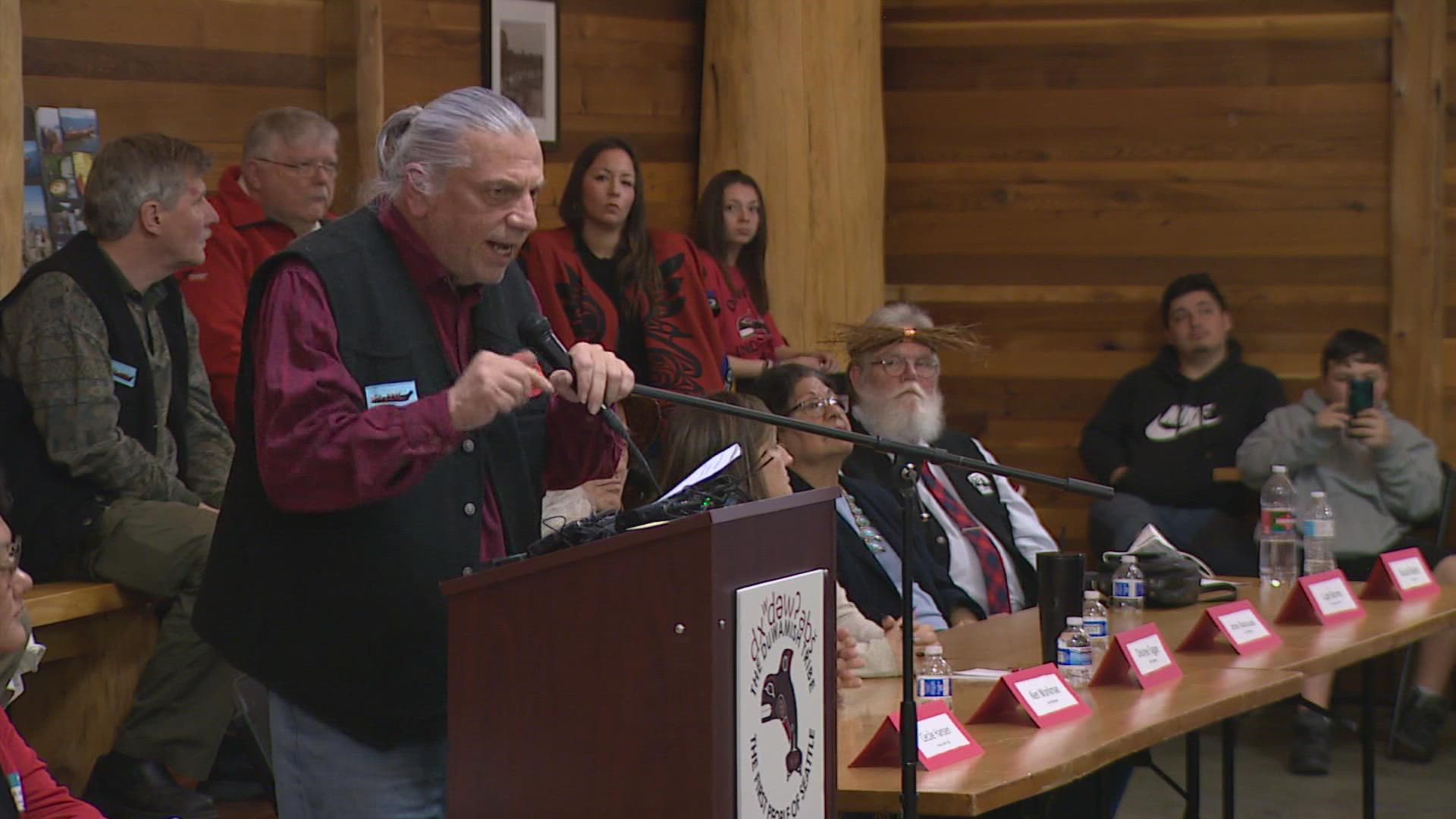SEATTLE — The Duwamish Tribe filed a lawsuit against the United States Department of the Interior in its fight for federal recognition.
The lawsuit, filed Wednesday in U.S. District Court for western Washington, continues the push for the Duwamish people to right what they say is a decades-old wrong and to “secure its tribal sovereignty.”
The Duwamish and others signed the Treaty of Point Elliott with the U.S. government in the 1800s when white settlers arrived in Washington. In the treaty, the first people gave up thousands of acres of land, including much of King County, in exchange for hunting and fishing rights and the creation of a reservation near present-day Renton.
In the lawsuit, the Duwamish argue the U.S. Congress ratified the treaty in 1859 but that the Department of Interior has not federally recognized the tribe under the List Act of 1994, denying them funding for housing, education and health care.
"The Department of Interior apparently contends that the Duwamish Tribe that signed the Treaty of Point Elliott has somehow ceased to exist," the lawsuit says. "That contention not only conflicts with the historical record, it also conflicts with determinations made by other federal authorities, which the Department of Interior cannot simply ignore."
The lawsuit requests the court to issue a judgment that the Duwamish has been recognized by the U.S. government and to be listed on the Department of Interiors' list of federally recognized tribes.
Other tribes, which are federally recognized, have opposed the Duwamish efforts. The Muckleshoot have said they represent the descendants of the Duwamish people and that the U.S. government backs up their claims.
The Duwamish people initially petitioned for recognition in 1977, with their latest attempt being struck down in 2019.
In 2021, the Duwamish said they were renewed in their fight to be federally recognized after President Joe Biden appointed the first Native American interior secretary, Deb Haaland, who oversees the office in charge of recognizing tribes.
In a news conference Wednesday, Duwamish council members and attorneys with K & L Gates shared reasoning for the suit and expressed arguments about why, decades into their fight, the Duwamish have still not been acknowledged. Attorneys argue the government discounted the lineage of many of their ancestors - specifically women who married non-native spouses - impacting descendants down the line.
"This is discrimination based on sex," Shelby Stoner said. "It violates the US constitution, and the Duwamish Tribe's equal protection under the laws. At the very least, this lawsuit is being filed to stop the Department of Interior from discriminating against the Duwamish tribe because of the sex of their ancestors."
Opponents of the effort, including the Muckleshoot Tribe, say that when the Duwamish people were forced to leave their native lands, they joined other tribes, including Muckleshoot. They say the Muckleshoot Tribe represents the majority of Duwamish descendants, and this would misdirect sovereignty. The crowd at the Duwamish Longhouse disagreed.
"Our fight is not with you; it has never been with you," James Rasmussen said. "Our fight is with the federal government. And you should support this because right now if the Duwamish tribe is not part of [the Treaty of Point Elliott], than how much is that treaty worth?"
Desireé Rose Fagan's family has petitioned for acknowledgement for decades.
"To be a descendant of Chief Sealth is an honor," Fagan said. "And it's not something that I learned in school."
She's hopeful that renewed attention on native history, an indigenous Interior Secretary and this legal effort will lead the BIA to reconsider, or for the court to issue an order.
"I am hoping that for our future generations, they won't have to experience what some of us have gone through," Fagan said.

